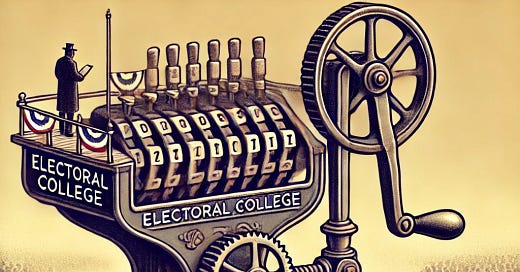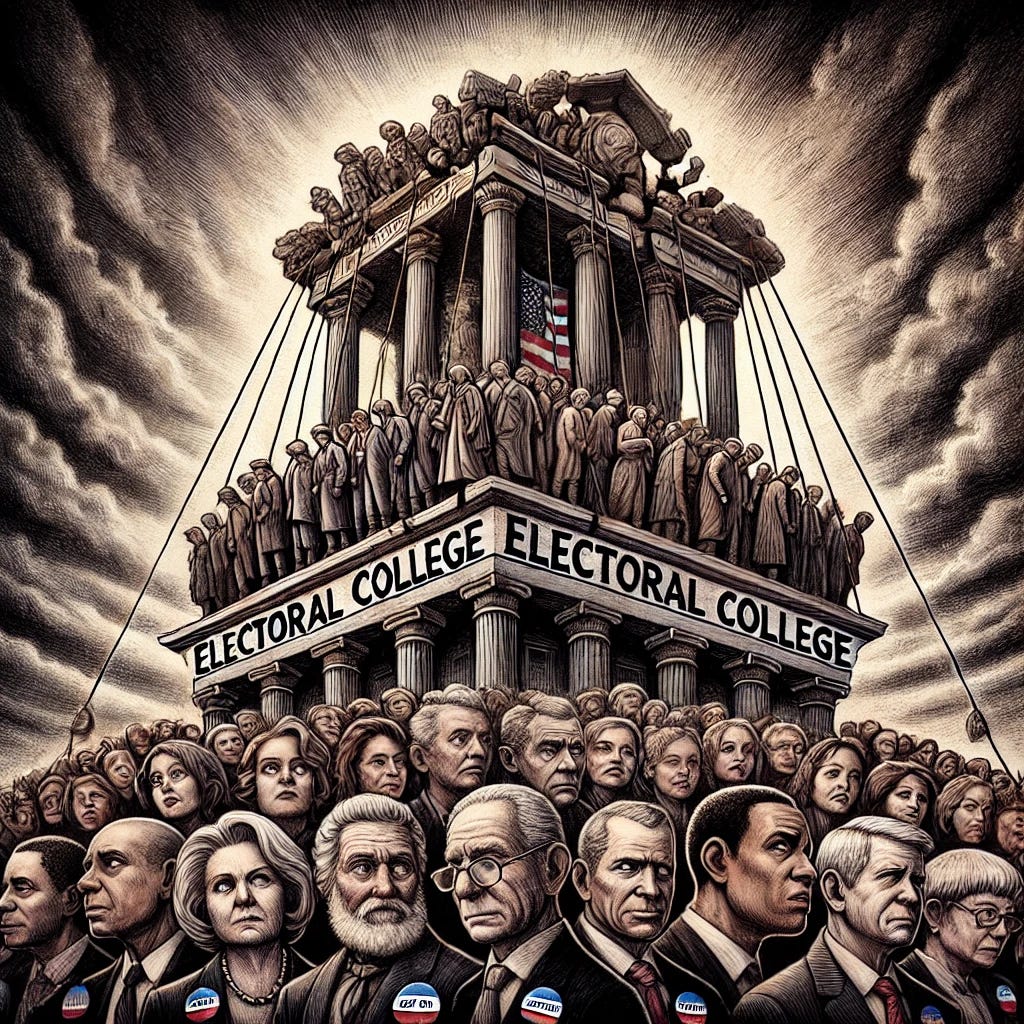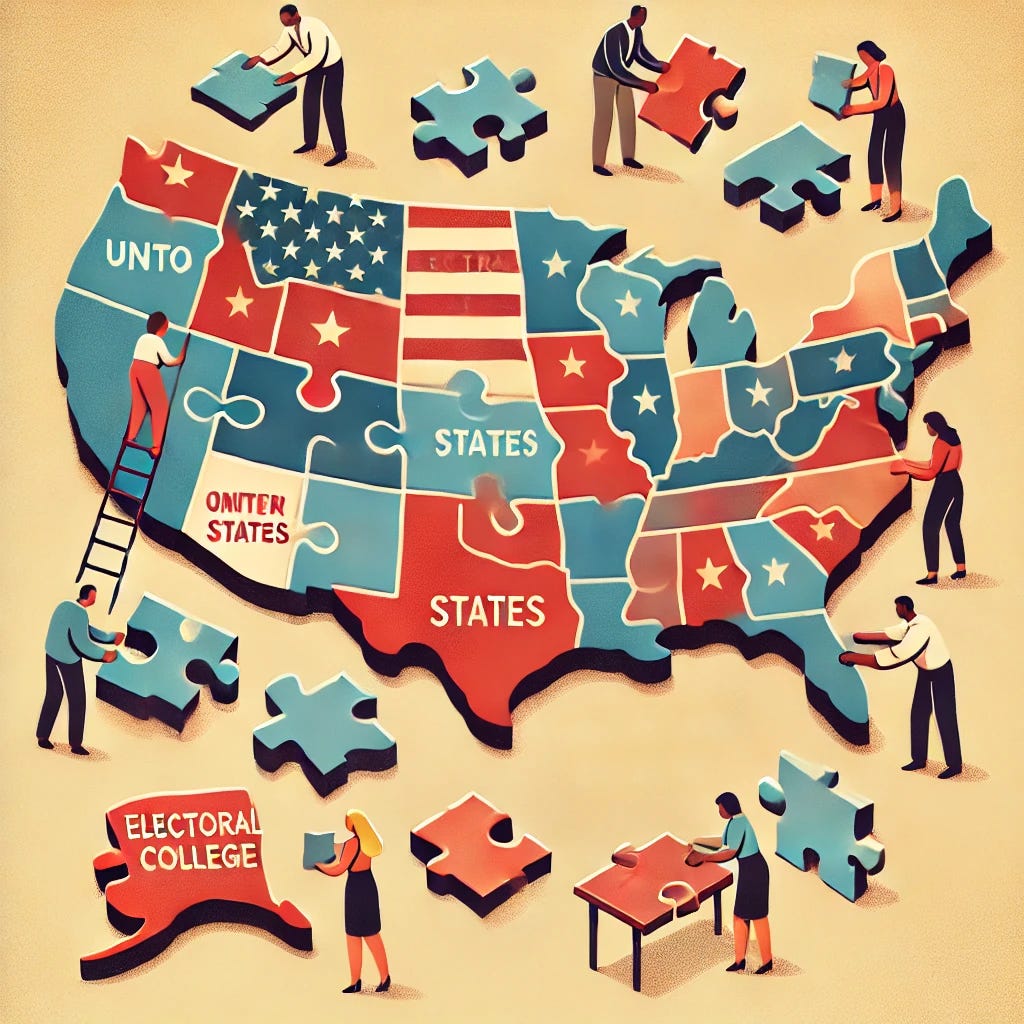The Electoral College stands as one of the most glaring contradictions in the United States' claim to democratic governance. This archaic institution, rooted in a compromise between federalists and anti-federalists during the Constitutional Convention of 1787, embodies the founders’ mistrust of direct democracy and their preference for elite control. Despite its defenders touting its necessity to protect smaller states and prevent “tyranny of the majority,” the Electoral College has repeatedly proven itself to be a relic of elitism, perpetuating inequality and disenfranchisement while undermining the foundational principle that every vote should count equally.
Why the Electoral College Exists
The Electoral College was not created to ensure fairness or justice; it was devised as a safeguard for the political power of slave-holding states. Southern states demanded a mechanism that would inflate their influence in presidential elections without granting the enslaved population full citizenship or voting rights. By tying electoral votes to population—including enslaved individuals who were counted as three-fifths of a person for representation—the system cemented a hierarchy that disproportionately empowered white, landowning elites1.
Additionally, the founders were deeply skeptical of the ability of ordinary citizens to make informed decisions. The Electoral College was a compromise to ensure that the “right kind” of leaders—those with wealth, education, and land—could exert control over the selection of the president. In other words, the Electoral College was a thinly veiled tool to ensure that the ruling class retained dominance while paying lip service to the concept of democratic participation.
A Performative Vote
Fast forward to today, and the Electoral College continues to distort the will of the people. In five instances—including two in the last 25 years—a presidential candidate who lost the popular vote was installed into office, often pursuing policies that a majority of Americans did not support. This reveals the stark truth: our votes are often performative. Citizens cast their ballots, believing in the promise of democracy, but the system ensures that their power is diluted through a complex, state-based mechanism that renders many votes irrelevant.
Consider the concept of “swing states.” In battleground states like Pennsylvania or Arizona, votes carry significant weight. Meanwhile, in reliably “red” or “blue” states such as California or Wyoming, individual votes are essentially meaningless. A voter in Wyoming has nearly four times the influence in a presidential election as a voter in California. How can this be reconciled with the principle of one person, one vote? It can’t.
The Electoral College's Modern Legacy
The justification for the Electoral College—that it prevents tyranny of the majority and protects minority interests—has been twisted into a tool for maintaining power by a vocal minority. Politicians exploit gerrymandering, voter suppression, and disinformation campaigns to ensure that their base is overrepresented in the Electoral College. Meanwhile, urban voters, young voters, and communities of color—the growing majority in America—are systematically sidelined.
This same reasoning has seeped into other facets of society. Just as the Electoral College was designed to consolidate power in the hands of a few, modern political, economic, and social systems continue to prioritize elite interests over equitable representation. Corporate lobbying, campaign financing, and media monopolies perpetuate a cycle where the majority’s voices are drowned out by the influence of a wealthy minority. The rationale behind the Electoral College—that ordinary people cannot be trusted with full agency—persists in the erosion of voting rights, economic justice, and even climate policy, where powerful interests dictate the rules of engagement.
The Electoral College is a vestige of fear and elitism, created to placate the insecurities of 18th-century oligarchs and perpetuated by modern powerbrokers intent on maintaining the status quo. Its continued existence makes a mockery of the democratic ideals America claims to champion.
Reform is not only overdue—it is essential. To cling to the Electoral College is to admit that we are not a democracy, but rather a society where the will of the people is performative, used to give the illusion of consent while decisions are made behind closed doors by those with entrenched power.
The Federalist Papers and James Madison's notes on the Constitutional Convention provide insights into these discussions. Historians like Sean Wilentz and Alexander Keyssar have also explored this connection in their works.






